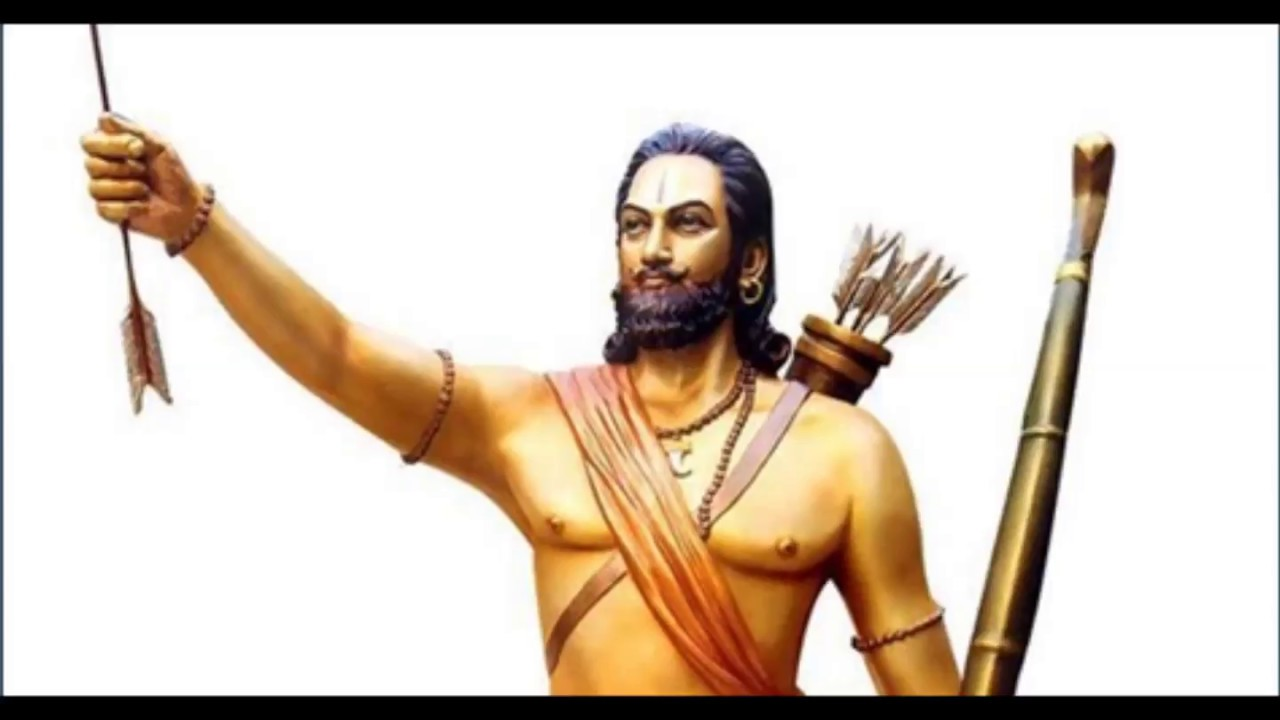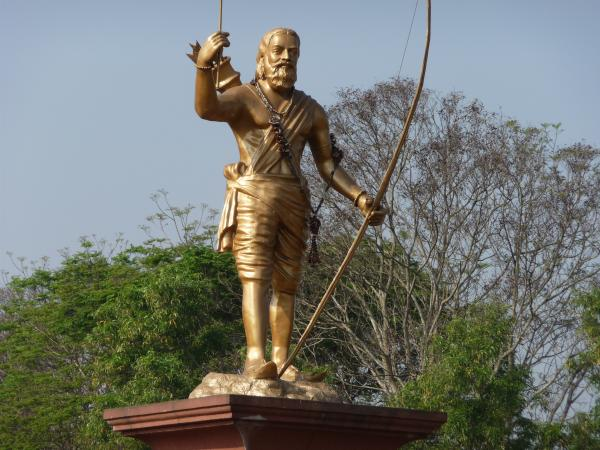
Untold Heroism
Alluri Sitaram Raju's Fight for a Free Nation
GS-1 History
Sri Alluri Sitaram Raju, a valiant freedom fighter and tribal leader, played a pivotal role in India's struggle for independence.
Hailing from the tribal region of Andhra Pradesh, Raju's fierce dedication to his people's rights and his unwavering commitment to overthrow British colonial rule left an indelible mark on India's history.
Early Life and Tribal Background: Born on July 4, 1897, in Pandiri Valasa, a remote village in the Visakhapatnam district of Andhra Pradesh, Raju was raised in a tribal community. He witnessed firsthand the exploitation and oppression faced by the local tribal population due to British policies and practices. This experience ignited his resolve to fight for justice and equality.
Contribution to Independence
The Rampa Rebellion (1922–1924): Raju's most notable contribution to India's struggle for freedom was the Rampa Rebellion, also known as the Rampa Revolt, which took place between 1922 and 1924. The rebellion was an armed uprising against the exploitative practices of the British colonial administration and the Zamindari system, which perpetuated landlessness and poverty among the tribal population.
Raju's leadership skills and determination galvanized the tribal communities of the region to rise against their oppressors. He organized guerilla attacks, successfully disrupting British operations, and encouraged tribal people to demand their rights and reclaim their ancestral lands.
Key Objectives
Raju's rebellion had multifaceted objectives:
- Anti-British Struggle: The rebellion aimed to drive the British colonial rulers out of the region and end their oppressive policies.
- Land Rights: A significant focus was on securing land rights for the tribal communities and freeing them from the clutches of exploitative landlords.
- Cultural Identity: Raju emphasized the preservation of tribal culture and identity, advocating for their distinct way of life against attempts at assimilation.
- Social Justice: The rebellion also highlighted the need for social justice and the upliftment of the marginalized sections of society.
Course of the Rebellion
In 1922, Raju orchestrated an armed uprising against the British authorities. His strategy involved guerrilla warfare tactics, where small groups of rebels carried out surprise attacks on police stations, government establishments, and other strategically significant targets. The rebellion gained momentum as it resonated with the prevailing discontent and desire for social and economic equity.
Local support was crucial to the rebellion's success, with tribal and peasant communities rallying behind Raju's cause. One of the pivotal events of the rebellion was the attack on the Rampachodavaram police station, during which the rebels managed to seize weapons and ammunition, bolstering their campaign.
In response, the British colonial administration deployed armed forces to quell the rebellion. Raju and his followers confronted a formidable and well-equipped opposition, leading to significant challenges for the rebels.
End of Revolt and Martyrdom
Tragically, the rebellion ended in 1924, when Raju was betrayed by an informant and apprehended by British forces.
On May 7, 1924, he was captured, and executed by hanging. His sacrifice became a symbol of resistance and resilience against colonial oppression. As a tribute to him, the nation unveiled his statue in 2022 at Bhimavaram, Andhra Pradesh.

Conclusion
Sri Alluri Sitaram Raju's life and struggle exemplify the courage and resilience of ordinary individuals who rise to extraordinary heights for a just cause. His legacy lives on, reminding us of the importance of fighting for justice, equality, and the rights of marginalized communities. Raju's story continues to inspire not only those seeking freedom from oppression but also those striving for a more equitable and inclusive society.
|
Values and Ethical principles to learn from Alluri Sitaram’s Character 1. Courage: Raju's fearless determination to stand up against the mighty British colonial regime demonstrates the value of courage. He faced overwhelming odds but was unwavering in his commitment to his cause. This teaches us the importance of confronting challenges with bravery. 2. Integrity: Raju's fight was grounded in his unwavering sense of justice and ethical principles. His actions remind us of the significance of upholding integrity and standing for what is morally right, even in the face of adversity. 3. Empowerment: Raju's efforts to empower marginalized communities highlight the value of inclusivity and equality. His struggle shows the importance of working to uplift those who are oppressed and marginalized, striving for a more just society. 4. Leadership: Raju's ability to lead and unite people from diverse backgrounds showcases effective leadership. His capacity to inspire and mobilize others underscores the importance of strong and compassionate leadership in achieving significant goals. 5. Resilience: Despite facing setbacks and challenges, Raju continued to fight for his ideals. His resilience and determination teach us the value of perseverance in the pursuit of justice and freedom. These core values from Alluri Sitaram Raju's struggle against the British serve as guiding principles that can inspire individuals to make positive contributions to their communities and the world. |


